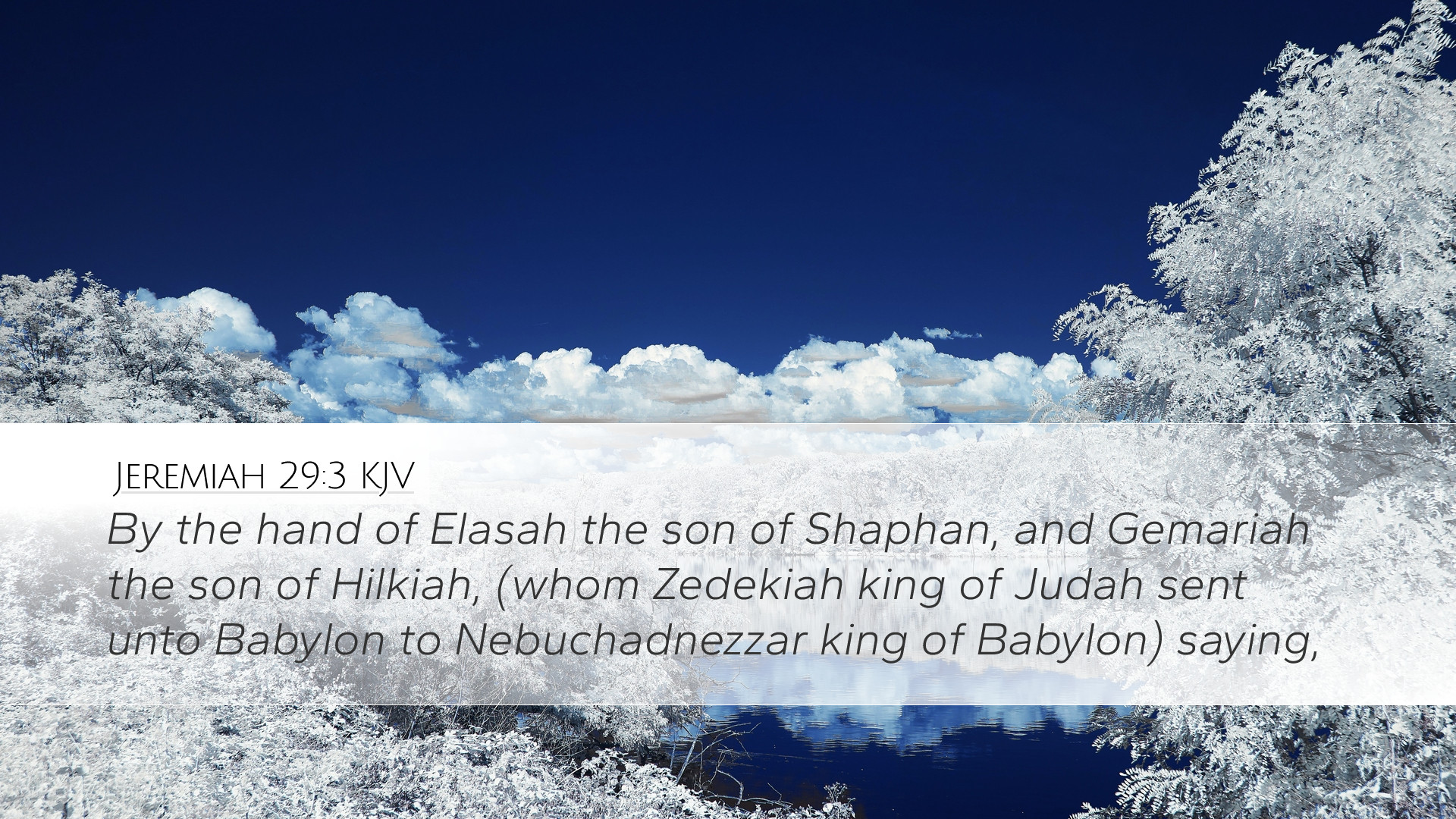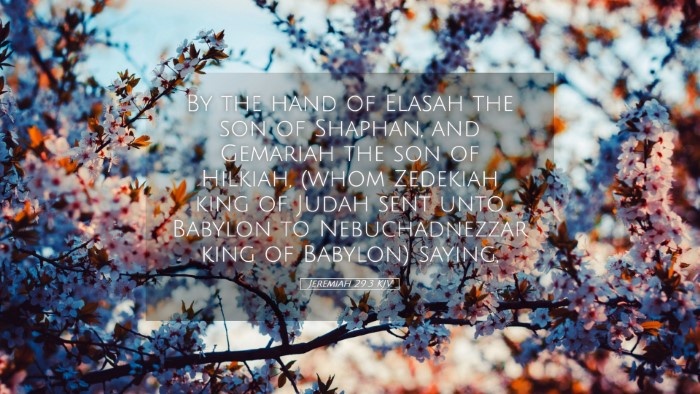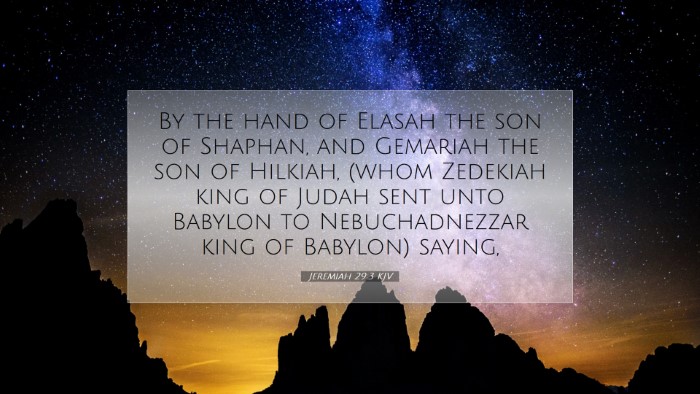Commentary on Jeremiah 29:3
Verse Context: Jeremiah 29:3 states, "By the hand of Elasah the son of Shaphan, and Gemariah the son of Hilkiah, whom Zedekiah king of Judah sent to Babylon to Nebuchadnezzar king of Babylon, saying," This verse introduces a letter sent by the prophet Jeremiah to the exiles in Babylon, emphasizing God's ongoing relationship with His people even in captivity.
Overview:
This passage serves as part of a broader message of hope and discipline. The Jews in Babylon were experiencing the consequences of their disobedience, yet God, through Jeremiah, reassures them about their future. The letters here represent God's communication to His people, showing His interest in their well-being.
The Historical Context:
The historical backdrop sets the stage for understanding the profound implications of this letter. At the time of its writing, Jerusalem had fallen, and many citizens were taken into Babylonian captivity.
Deportation of the Jews:
- Historical Significance: The Babylonian Exile was a pivotal moment in Jewish history, marking a time of reflection and reevaluation of faith.
- God's Sovereignty: This event wasn't merely the result of geopolitical events; rather, it was a purposeful act by God to bring about repentance and restoration.
The Letter's Purpose:
The essence of Jeremiah's letter is to guide the exiles on how to live in Babylon. Rather than succumbing to despair, they are encouraged to flourish in their temporary home.
Insights from Commentators:
- Matthew Henry: Henry emphasizes that God’s communication through Jeremiah serves as a reminder of His love and faithfulness. Despite their situation, God plans a future for them. God advises the people to build houses, plant gardens, and seek the peace of the city.
- Albert Barnes: Barnes notes that the direction to “seek the peace” of the city signifies an expectation of active engagement in their physical surroundings. This underscores the idea that God's people should contribute to the common good, even when in exile.
- Adam Clarke: Clarke reflects on the importance of the leaders mentioned in the verse, Elasah and Gemariah. He posits that these figures symbolize the respect and order intended for God’s people, retaining their identity even while under foreign rule.
Theological Themes:
- Hope in Exile: This passage reflects a foundational theological theme: hope amidst despair. The Jews are reminded to maintain their faith, for God has a future for them beyond their current suffering.
- God's Plans: God's plans are highlighted in the following verses of Jeremiah 29, emphasizing that His intentions for His people are for their welfare, reassuring them against fear.
Pastoral Applications:
- Encouragement in Trials: Pastors can use this passage to comfort congregants facing adversity, presenting God's promise of presence and care.
- Engagement with Society: The call to seek the peace of Babylon can inspire believers to take an active role in their communities, promoting peace and justice.
- Future Hope: Preaching from this text gives the assurance that regardless of current circumstances, God has a redemptive plan for His people.
Conclusion:
Jeremiah 29:3 is more than a historical marker; it is a profound reminder of God's engagement with His people during trials. Through the insights of respected commentators like Matthew Henry, Albert Barnes, and Adam Clarke, we understand the importance of maintaining hope and purpose, even in times of exile and uncertainty. The call to actively engage with the community around us highlights a vital aspect of our faith, urging believers to be agents of peace and hope in a troubled world.


